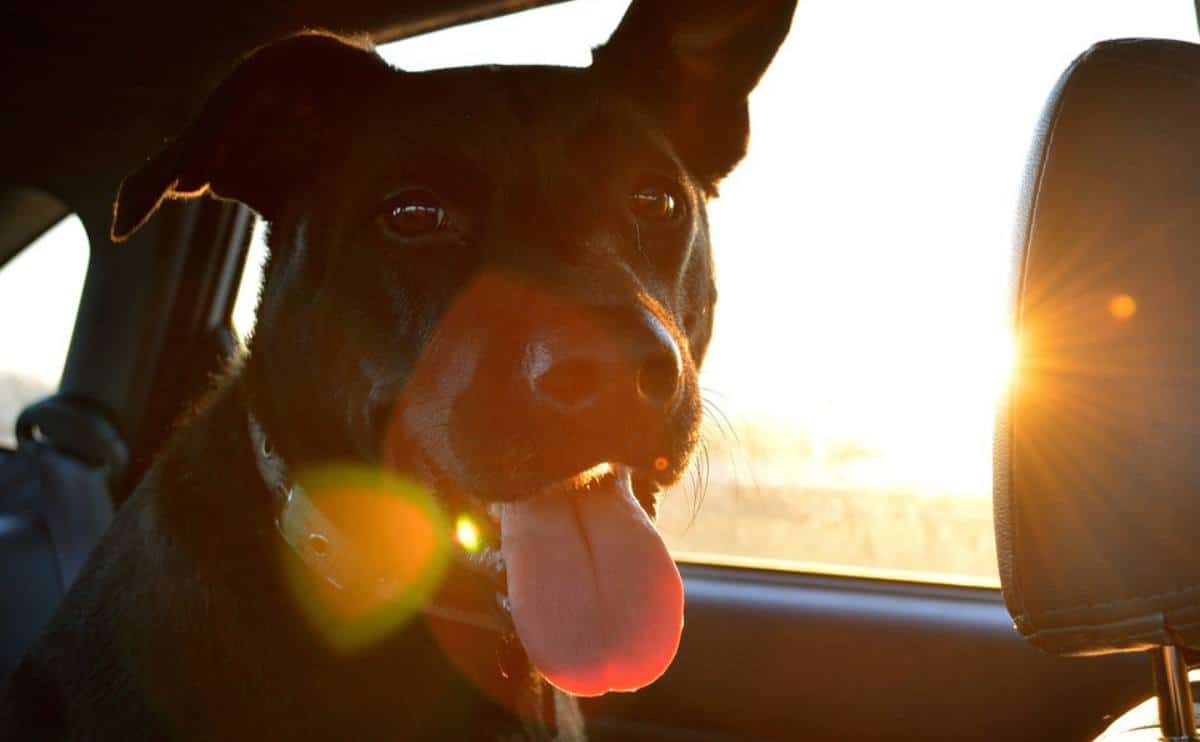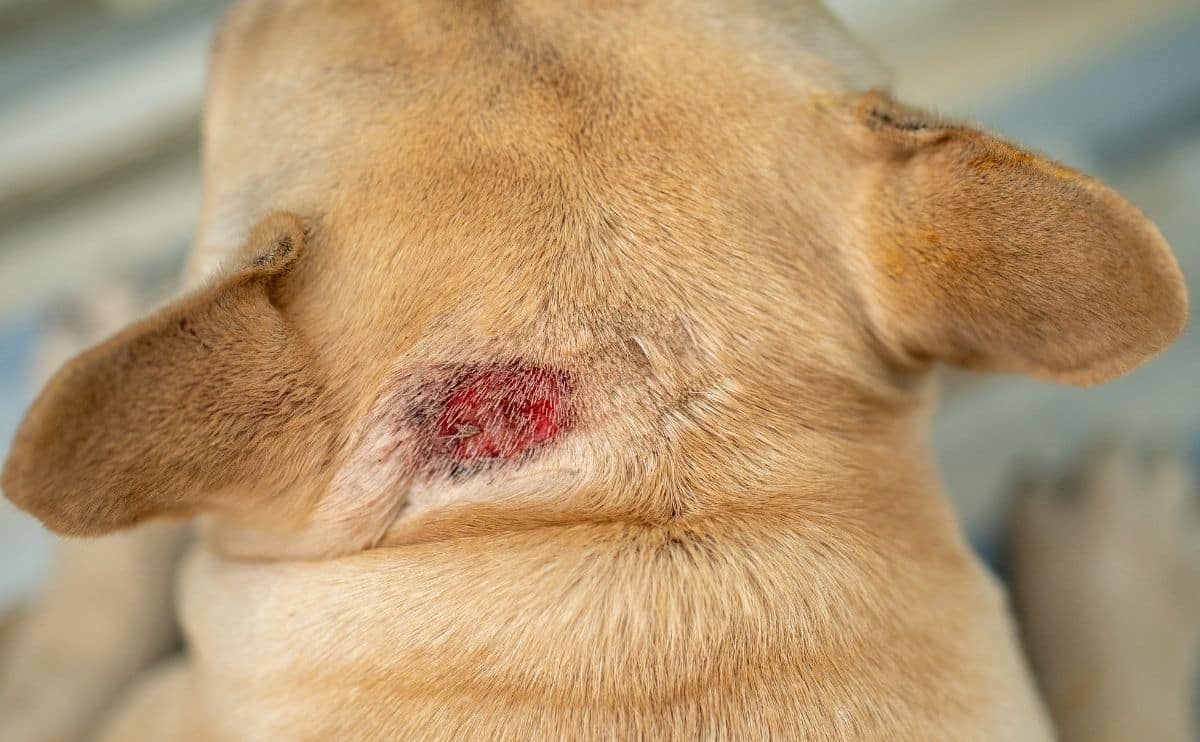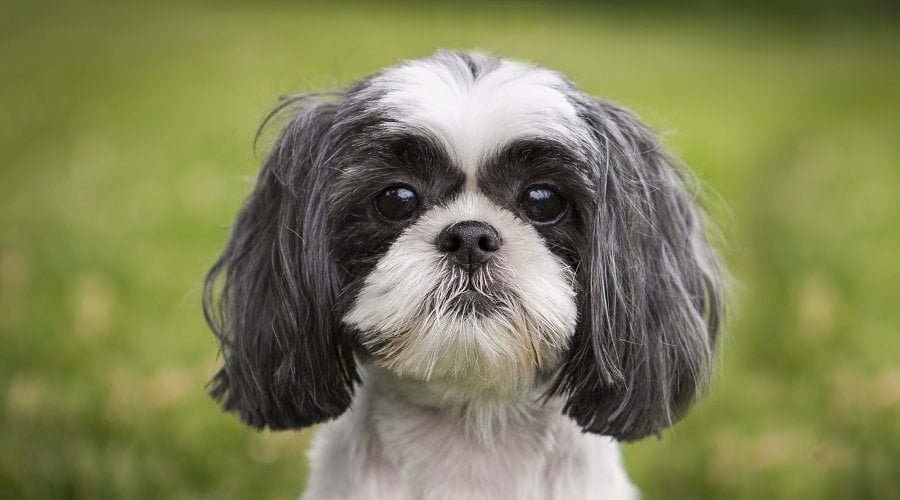What Is Reverse Sneezing In Dogs? (And How To Stop It)
When you purchase through links on our site, we may earn a commission. Here’s how it works.

One of our nicknames for our family dog is Mr. Piggy because he has these strange snorting spells that come on as suddenly as they disappear. I had no idea until recently that these spells are actually a condition called reverse sneezing. While our pup never seems in dire distress when these bouts hit him, I wanted to learn more to make sure there wasn’t anything to worry about. Here’s what I uncovered about reverse sneezing.
Table of Contents
What Is Reverse Sneezing In Dogs?
Reverse sneezing, or paroxysmal respiration, is a common respiratory condition that can affect all types of dogs but more frequently concerns smaller dogs and those with shorter noses and flat faces.
During a reverse sneeze, a dog suddenly stands still, extends his head and neck, rapidly pulls air into his nose, makes a snorting sound, and appears to be trying to inhale while sneezing. This contrasts with a regular sneeze, where a dog rapidly pushes air out through his nose.
What Does A Reverse Sneeze Look And Sound Like? (Video)
Wondering if what your dog is doing is reverse sneezing? We have personal first-hand experience with this. Georgie, the Cavalier King Charles Spaniel, is prone to reverse sneezing when on walks with a lot of allergens and when he’s in panic mode. This video shows our very own team member’s dog Georgie reverse sneezing while on a walk.
Is Reverse Sneezing In Dogs Dangerous?
Reverse sneezing in dogs happens in sudden, spasm-like episodes, so it can be alarming for a dog owner. But it’s not harmful to your dog, and there aren’t any lasting effects. Episodes can last anywhere from several seconds to about a minute, but dogs are entirely normal before and after a reverse sneezing episode. It’s common for dogs with this condition to have fairly frequent fits during their lifetime.
Dog Asthma Attack Or Reverse Sneezing
Reverse sneezing differs from an asthma attack, which appears as labored breathing, wheezing, shortness of breath, and heavy, open-mouthed breathing. It’s also different from a tracheal collapse (often seen in toy breeds), which is characterized by a persistent, dry, harsh cough that sounds like a loud honking. Both of these conditions can be serious (although tracheal collapse is only serious in severe cases), while reverse sneezing is not dangerous for your pup.
What Causes Reverse Sneezing In Dogs?
Why do dogs reverse sneeze? The exact cause of a reverse sneeze is unknown, but studies suggest that any irritation to the nose, sinus passages, or back of the throat can trigger an episode. Common irritants can include dust, pollens, grasses, nasal mites, secretions, smoke, or even odors. Reverse sneezing is likely a way for a dog’s body to attempt to remove these irritants, allergens, or foreign particles from his upper airways.
However, reverse sneezing can also occur after periods of over-excitement or over-stimulation. And some suspect that another cause could be a sudden change in temperature (like when you’re taking him from air conditioning to outdoors when it’s hot).
Our Personal Experience
“Lexie, my King Charles Cavalier, will often start reverse sneezing out of nowhere. From my first-hand experience, I can attest that the situation can be terrifying. It seems like they are choking or having a panic attack. When her wheezing episodes happen, every six months or so, I hold her and pet her head to calm her down. That seems to do the trick.”
– Sadie C., Canine Journal
Dog Reverse Sneeze Treatment
If you’re not sure if your dog is reverse sneezing or has another respiratory condition, it’s a good idea to see your veterinarian. Your vet can rule out other causes of snorting and abnormal breathing, such as an upper respiratory tract infection, a tracheal collapse, foreign bodies in the nasal passages or mouth, collapsing trachea, nasal tumors or polyps, or other respiratory conditions.
Most dogs don’t require medication or any other treatment for reverse sneezing. However, some vets may recommend antihistamines if the condition is chronic and allergy-related. With your vet’s approval, you could give your dog an oral antihistamine containing diphenhydramine (like Benadryl) if you both suspect allergies are the cause.
How To Stop Reverse Sneezing In Dogs
Although an episode of reverse sneezing isn’t harmful to your dog, you may want to give him some relief if the spell lasts longer than a minute — or if it’s distressing for you. Here are some common remedies that may help stop the spasms:
- Hold your dog’s nostrils closed for a second using your thumb
- Gently stroke your dog’s neck and try to calm him
- Lightly blow in his face
- Take your dog outside with fresh air (or inside if you think an outdoor irritant is causing the episode)
Want To Know Which Irritants Affect Your Dog?
If your dog suffers from reverse sneezing or suspected allergies, you can gain a better understanding of which items irritate your dog by doing an at-home allergy test kit. These kits test for sensitivity or intolerance to a wide variety of environmental factors and many food items and ingredients. See our reviews of the best at-home dog allergy test kits to learn more.



